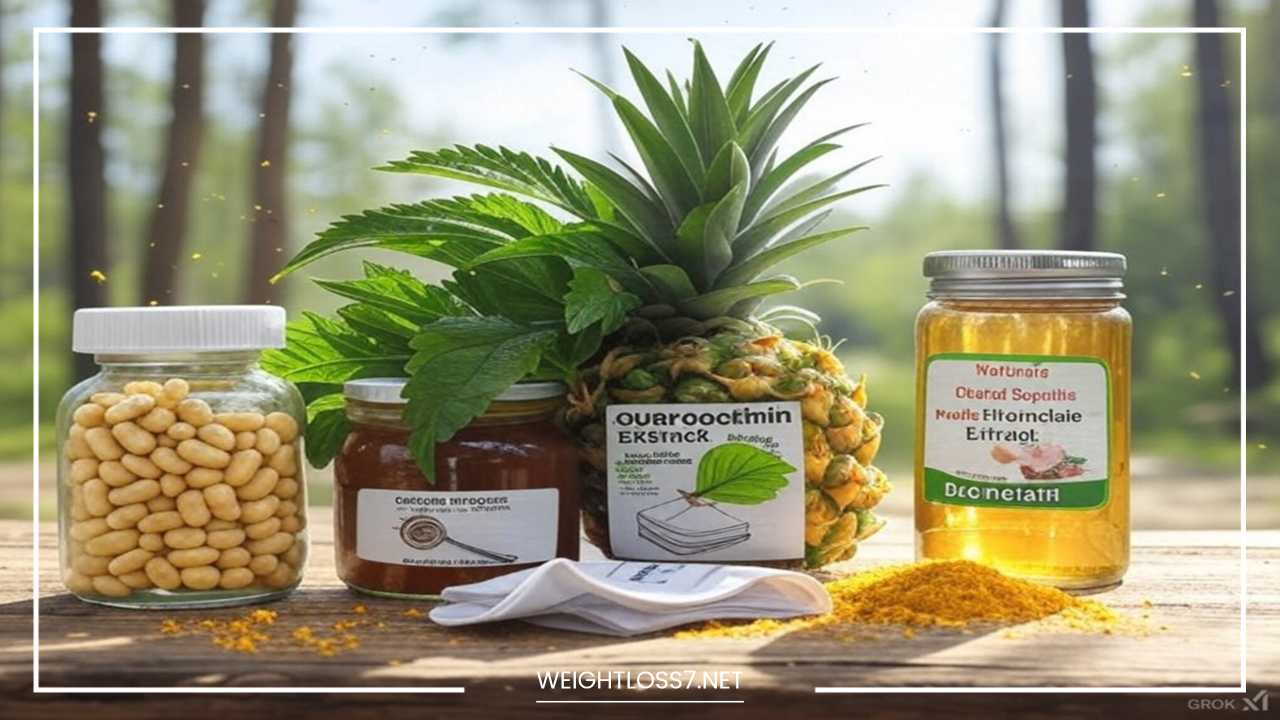Natural Remedies for Pollen Allergies

Natural Remedies for Pollen Allergies
Natural Remedies for Pollen Allergies: A Comprehensive and Detailed Guide
Pollen allergies, also known as hay fever or allergic rhinitis, are one of the most common allergic conditions affecting millions of people around the world.
These allergies occur when the immune system overreacts to pollen – a fine powder released by trees, grasses, and weeds as part of the plant’s reproductive cycle.
This reaction can trigger a variety of uncomfortable symptoms such as sneezing, a runny nose, itchy eyes, and nasal congestion, making it difficult for people to go about their daily activities, especially during pollen seasons.
While conventional treatments such as antihistamines, nasal corticosteroids, and decongestants can effectively relieve these symptoms, many people seek out natural alternatives to avoid potential side effects and embrace holistic wellness practices.
Fortunately, there are a variety of natural remedies backed by research and centuries of traditional use that may offer significant relief for pollen allergy sufferers.
These remedies target different aspects of the immune response, providing allergy sufferers with multiple ways to manage and even reduce their symptoms.
In this comprehensive guide, we will explore the most popular natural remedies for pollen allergies, along with additional tips for managing symptoms and improving overall health.
Understanding Pollen Allergies and How They Affect the Body
Pollen allergies are triggered when the body’s immune system mistakes harmless pollen particles for harmful invaders.
As a result, the immune system overreacts and produces antibodies called immunoglobulin E (IgE), which bind to specific allergens.
This process causes the release of chemicals such as histamine that lead to inflammation and irritation in the nasal passages, eyes, and throat.
When pollen enters the body through inhalation or contact, it binds to mast cells, triggering the release of histamine.
Histamine then dilates blood vessels and increases the permeability of the blood vessel walls, leading to swelling and fluid leakage into surrounding tissues. This is what causes the common symptoms of allergic rhinitis, such as:
- Sneezing
- Nasal congestion
- Watery, itchy eyes
- Post-nasal drip
- Itchy throat
- Fatigue
Depending on the severity of the allergic response, these symptoms can range from mild to debilitating.
The seasonal nature of pollen allergies means they are typically most troublesome in the spring, summer, and early fall when trees, grasses, and weeds release their pollen into the air.
Conventional Treatments for Pollen Allergies
Before we explore the natural remedies, it is important to recognize the conventional treatments that many people turn to in order to manage their pollen allergies. These include:
- Antihistamines: These medications block the effects of histamine, the chemical responsible for allergy symptoms. Antihistamines are available in oral tablets, nasal sprays, and eye drops.
- Decongestants: These medications reduce nasal congestion by shrinking the swollen blood vessels in the nasal passages. They are commonly used in combination with antihistamines.
- Nasal Corticosteroids: These are anti-inflammatory medications that help reduce nasal congestion, sneezing, and other allergy symptoms. They are often used for long-term relief.
- Allergen Immunotherapy (Allergy Shots): This treatment involves exposing the body to small amounts of allergens over time to build tolerance. It can be a longer-term solution but may take several months to show results.
However, while effective, many of these treatments come with side effects such as drowsiness, dry mouth, or irritation in the nasal passages.
For this reason, natural remedies are often sought by those who wish to manage their symptoms without relying solely on pharmaceutical interventions.
1. Quercetin: A Powerful Natural Antihistamine
Quercetin is a type of flavonoid, a group of plant compounds known for their antioxidant and anti-inflammatory properties.
Found in fruits like apples, grapes, and berries, as well as vegetables like onions, kale, and broccoli, quercetin has been shown to act as a natural antihistamine.
It stabilizes mast cells, preventing them from releasing histamine and other inflammatory chemicals into the bloodstream.
Studies suggest that quercetin may help reduce common allergy symptoms such as sneezing, nasal congestion, and itchy eyes.
By inhibiting histamine release, it works similarly to conventional antihistamines but without the risk of drowsiness or other side effects.
Quercetin is often available as a supplement, but eating a diet rich in quercetin-containing foods can also provide benefits.
Recommended Intake: While quercetin supplements are available, consuming quercetin-rich foods such as apples, onions, citrus fruits, and berries is the best natural approach to reaping its benefits.
2. Stinging Nettle: Nature’s Allergy Fighter
Stinging nettle (Urtica dioica) is an herb that has been used for centuries in traditional medicine for various health issues, including allergies.
It contains compounds that may help block the production of histamine and reduce inflammation associated with allergic reactions.
As a result, stinging nettle may help alleviate symptoms of hay fever such as sneezing, itchy eyes, and nasal congestion.
Some studies have indicated that stinging nettle may be as effective as some over-the-counter antihistamines in reducing allergy symptoms. The plant can be consumed in several forms, including teas, capsules, or tinctures.
Recommended Use: Nettle tea or supplement forms are commonly used. It is essential to start with a small dose to assess tolerance before gradually increasing.
3. Bromelain: The Pineapple Enzyme
Bromelain is an enzyme extracted from the stem and fruit of pineapples. Known for its anti-inflammatory properties, bromelain can help reduce swelling in the sinuses and improve sinus drainage, alleviating congestion.
It also has the ability to enhance the absorption of other allergy-relieving compounds, making it a valuable addition to a comprehensive allergy management plan.
Research indicates that bromelain can reduce symptoms such as nasal congestion, sneezing, and post-nasal drip, particularly when combined with other remedies like quercetin. Bromelain can also help with sinus inflammation caused by pollen allergies.
Recommended Intake: Bromelain is commonly available in capsule form and can be taken with meals to support digestion and enhance its anti-inflammatory effects.
4. Butterbur: A Natural Alternative to Antihistamines
Butterbur (Petasites hybridus) is a perennial herb native to Europe and Asia that has gained attention for its ability to alleviate allergy symptoms.
Several clinical studies have found that butterbur extract can be as effective as conventional antihistamines in reducing symptoms such as sneezing, nasal congestion, and itchy eyes.
The active compounds in butterbur are believed to block histamine release and reduce inflammation in the nasal passages and sinuses.
Butterbur is considered one of the most effective natural remedies for pollen allergies. However, it is essential to use only purified butterbur extract, as raw butterbur can contain harmful compounds that may be toxic to the liver.
Recommended Intake: Butterbur supplements are available, typically in dosages of 50–75 mg, taken 2–3 times per day. Look for products labeled “PA-free,” indicating they have been purified to remove harmful compounds.
5. Vitamin C: An Immune System Boost
Vitamin C is one of the most well-known antioxidants, playing a vital role in supporting the immune system.
It helps stabilize immune responses and reduces inflammation. Vitamin C can also inhibit histamine release, making it an effective natural remedy for allergies.
In fact, high doses of vitamin C have been shown to significantly reduce the severity of allergic reactions.
Many fruits and vegetables are excellent sources of vitamin C, including citrus fruits, strawberries, kiwi, bell peppers, and leafy greens.
Regular intake of vitamin C can help lower overall histamine levels in the body, potentially leading to fewer allergy flare-ups.
Recommended Intake: Aim for at least 500–1000 mg of vitamin C daily, either through foods or supplements, to help combat allergy symptoms.
6. Probiotics: Improving Gut Health to Combat Allergies
Probiotics are live bacteria that provide health benefits, particularly for digestive and immune health.
Recent research has shown that probiotics can help manage allergies by balancing the gut microbiome, which plays a crucial role in regulating immune responses.
A healthy gut can help strengthen the immune system and prevent overactive immune reactions to harmless substances like pollen.
Certain strains of probiotics, such as Lactobacillus and Bifidobacterium, have been shown to reduce inflammation and improve symptoms of allergic rhinitis.
Adding probiotic-rich foods like yogurt, kefir, and fermented vegetables to your diet, or taking probiotic supplements, can help maintain a balanced gut flora.
Recommended Use: Probiotic supplements are available in capsule or powder form. Fermented foods like yogurt, sauerkraut, and kimchi are also excellent natural sources of probiotics.
7. Omega-3 Fatty Acids: Reducing Inflammation
Omega-3 fatty acids are essential fats found in fatty fish such as salmon, mackerel, and sardines, as well as in plant-based sources like flaxseeds, chia seeds, and walnuts.
These fats are well-known for their ability to reduce inflammation throughout the body, which can help alleviate the symptoms of allergies.
Omega-3 fatty acids support immune function and may prevent the immune system from overreacting to allergens.
By reducing overall inflammation in the body, omega-3s can help manage common symptoms of pollen allergies, such as nasal congestion, sneezing, and itchy eyes.
Recommended Intake: Aim for 1–2 servings of fatty fish per week or consider adding omega-3-rich plant foods to your diet. Omega-3 supplements (fish oil or algae-based) are also available for those who prefer them.
8. Local Honey: A Sweet Approach to Allergy Relief
Local honey has long been thought to help reduce pollen allergies by introducing small amounts of local pollen into the body, thereby potentially desensitizing it over time.
The idea is that eating small amounts of local honey helps the immune system build tolerance to the allergens present in the local environment.
While scientific evidence supporting the effectiveness of local honey for pollen allergies is limited, some people swear by this remedy, reporting a gradual reduction in their allergy symptoms after consuming honey regularly.
Recommended Use: Try consuming 1-2 teaspoons of local honey daily. Ensure the honey is raw and unprocessed to maximize its potential benefits.
9. Acupuncture: Traditional Relief for Allergies
Acupuncture, a practice rooted in traditional Chinese medicine, involves inserting thin needles into specific points on the body.
This ancient practice is believed to balance the body’s energy flow and may help reduce inflammation, promote healing, and regulate the immune system.
Several studies suggest that acupuncture can be an effective way to manage the symptoms of hay fever.
Acupuncture may help alleviate symptoms such as sneezing, nasal congestion, and itchy eyes by improving circulation and reducing histamine release.
Some allergy sufferers find acupuncture to be particularly helpful when used in conjunction with other natural remedies.
Recommended Use: Acupuncture treatments should be administered by a licensed professional. Sessions typically last 20-40 minutes and may be needed regularly for the best results.
10. Homeopathy: Personalized Treatment for Allergy Relief
Homeopathy is a system of medicine that uses highly diluted substances to stimulate the body’s self-healing mechanisms.
Homeopaths believe that small doses of natural substances can help activate the body’s immune system to counteract allergic reactions.
While the effectiveness of homeopathy for allergies remains a subject of debate, some individuals find significant relief from hay fever symptoms through homeopathic treatments.
Recommended Use: If interested in homeopathy, it is important to consult a professional homeopath who can recommend personalized remedies based on your symptoms and constitution.
Additional Tips for Managing Pollen Allergies Naturally:
In addition to using the remedies mentioned above, here are a few practical tips that can help reduce exposure to pollen and alleviate symptoms:
- Avoid Pollen Exposure: Stay indoors on days with high pollen counts, and try to avoid outdoor activities during peak pollen hours (usually between 5:00 a.m. and 10:00 a.m.). After spending time outdoors, wash your hair and clothes to remove pollen.
- Use a Nasal Saline Rinse: A saline rinse can help clear pollen and other allergens from the nasal passages, reducing congestion and irritation.
- Wear a Mask: Wearing a mask designed to filter out pollen can be especially helpful when you need to go outside during high pollen seasons.
- Use Air Purifiers: Air purifiers with HEPA filters can help reduce indoor pollen levels, providing relief from indoor allergens.
- Keep Windows Closed: When pollen counts are high, keep windows closed to prevent allergens from entering your home.
Final Thoughts
Pollen allergies can be a significant burden for many people, but there are several natural remedies that may help alleviate symptoms and improve quality of life.
Remedies like quercetin, stinging nettle, bromelain, and butterbur have been shown to offer natural antihistamine and anti-inflammatory effects, while other approaches like probiotics, omega-3 fatty acids, and local honey may provide additional relief.
Always consult a healthcare professional before trying new remedies, especially if you are already taking prescription medications or have existing health conditions.
With the right natural approach, managing pollen allergies can become a more manageable task, and a combination of diet, lifestyle changes, and natural remedies can support long-term relief.
As with any health condition, a personalized plan tailored to your specific needs will provide the best results for overcoming the challenges of pollen allergies.

















